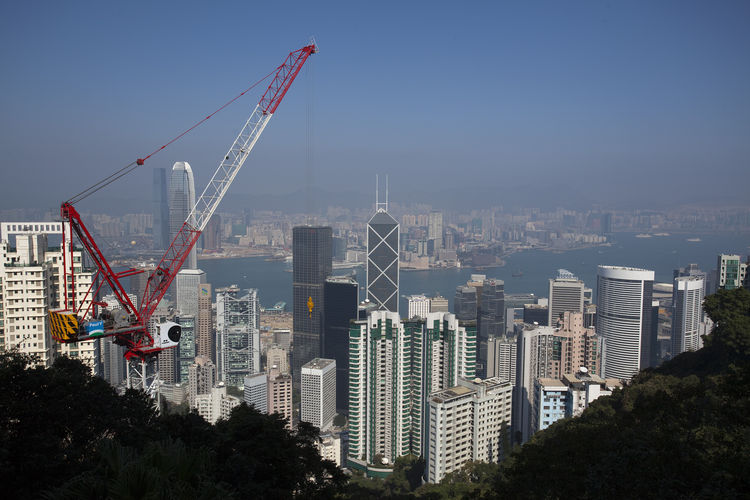- Analysts Proffer Measures to Enhance Economic Growth
Following a World Bank report that revealed economic growth in Nigeria has not been impressive since 1995, some economic analysts have advised the federal government to enhance investment in infrastructure and also develop policies that would encourage foreign direct investments (FDIs).
The World Bank had in the latest edition of its Africa’s Pulse stated that Nigeria’s economic growth has remained below population growth in the fourth consecutive year, adding that although regional growth was expected to rebound to 2.8 per cent in 2019, it has remained below three per cent since 2015.
However, reacting to the position of the multilateral institution, an analyst at Ecobank, Mr. Kunle Ezun, stressed the need for increased government spending.
He said: “This report wouldn’t come to me as a surprise looking at the economy in the last few years. We had slipped into recession and by 2017, we recovered slightly to grow at 0.8 per cent Gross Domestic Product (GDP) and by 2018, we grew by 1.93 per cent.
“So if you put that side by side with the size of the economy, and the population growth, you can completely say growth is slow and may not be adequate to support the economy.
“The economy on its own has a population growth of two per cent annually and if you have a growth of less than two per cent, then you would begin to see the gap and the threats to the economy.
“So if the World Bank has said is a slow-growing economy, it is accurate because the data are in line with that argument. This would continue to widen the gap between the rich and the poor and this gap might be the fertile ground for social unrest and for insecurity.”
Speaking on measures to boost economic growth, he said: “There is need for government to rejig the economy. This can start from the 2019 budget. I think the amount in the 2019 budget is low for our economy.
“The government needs to see how much of funds you can push into the system to stimulate the output and growth.”
Ezun added: “The federal government is a big spender in a growing economy like ours. So the government could spend like 60 per cent while the private sector would do about 30 per cent or more.
“So if they can fast track the approval of the minimum wage and all other reforms that would improve liquidity in the system and empower the citizenry to spend more, then we would be on the right path.
“That is because the citizenry is empowered to spend more, it stimulates local production and creates demand and when those two work together, you begin to see an improvement in the economy.”
On his part, an economist and Senior Lecturer at the Lagos Business School, Dr Bongo Adi, called for a different approach to monetary policy in the country.
He said: “We have to look at the implications of tight monetary policy which includes the tightening of liquidity, which reduces credit to the private sector.
“So if you back 10 years from 2008, aggregate monetary policy has been tight and when you look at our growth, you see that Nigeria has underperformed compared with sub-Saharan and middle-income countries in Africa and our growth rate has declined significantly.
“The slow growth is simply because of the way monetary policies have been managed.”
Speaking on measures the government should adopt to enhance growth, Adi said: “The truth is that we need to use monetary policy instruments to grow the economy and for that to happen, we should be approaching single-digit rates to enhance growth.”
To the Managing Director, Afrinvest Securities Limited, Mr Ayodeji Ebo, a major catalyst for growth is creating policies to secure foreign investments.
He explained: “What needs to be done is that there needs to be a more political will to implement a lot of the policies that are already available on investments. For this economy to grow, we need more partnership with private investments.
“Why people are not investing is because of the way by which the government can easily resign a transaction where investors would have put in a lot of money. so if we can rejig our policies to attract and ensure that once a contract is signed, no new government can come to override that first contract, then we can begin to attract more investments into critical areas that would jumpstart the economy.
“I think the federal government should come up with deliberate policies that would attract foreign direct investment, reduce the burden on the government and if we are able to that, I feel that this economy can grow at the rate of six to seven per cent if those policies are put in place.”

 Naira3 weeks ago
Naira3 weeks ago
 News4 weeks ago
News4 weeks ago
 Naira4 weeks ago
Naira4 weeks ago
 Jobs4 weeks ago
Jobs4 weeks ago
 Naira3 weeks ago
Naira3 weeks ago
 Travel3 weeks ago
Travel3 weeks ago
 Naira3 weeks ago
Naira3 weeks ago
 Investment4 weeks ago
Investment4 weeks ago






























